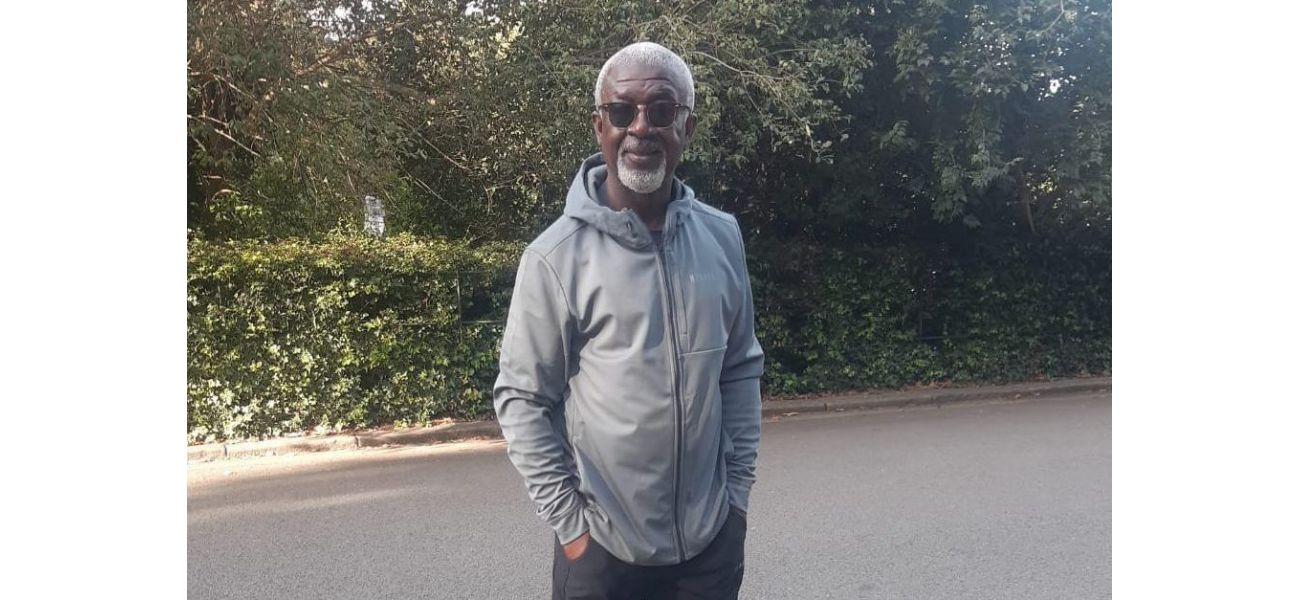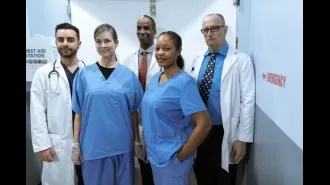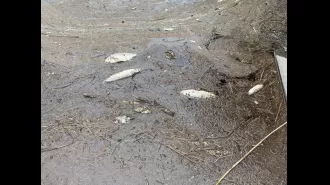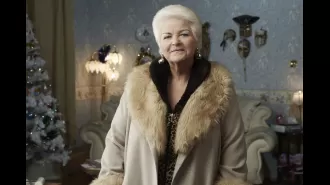I woke up to use the bathroom and didn't realize I should be concerned.
I was summoned to meet with a consultant, and I had a sense it wouldn't be positive.
December 15th 2024.

I remember that day like it was yesterday. I was sitting in the doctor's office, my nerves all jumbled up as I waited for my test results. Beside me were a community nurse and a consultant, and when the consultant uttered those dreaded words, my heart sank. "You have prostate cancer and it's aggressive." It was like a punch to the gut. The big C. I was terrified and felt completely lost. Little did I know, watching a random TV program would change my life forever.
It was October 2006 and I had tuned in to an episode of City Hospital, a documentary show that aired live from British hospitals. I didn't watch it regularly, but something drew me to it that day. And I am so grateful for that. The episode happened to be about prostate cancer and the importance of early detection. As soon as it ended, I contacted The Prostate Cancer Charity and spoke with their amazing specialist nurses.
As a Black man and with a family history of prostate cancer, the statistics hit home for me. One in four Black men are diagnosed with prostate cancer in their lifetime, and both of my grandfathers had been diagnosed with it. This motivated me to get tested, even though I didn't have any major symptoms at the time, aside from occasional nighttime bathroom trips.
My doctor was supportive and booked me for a prostate-specific antigen (PSA) blood test. While the results weren't conclusive, I pushed for more tests and eventually had a biopsy at my local hospital. A week later, I met with a consultant and my fears were confirmed - I had prostate cancer.
Leaving the hospital, I couldn't help but wonder what would have happened if I hadn't watched that TV program or taken the initiative to get tested. I felt like I was in a race against time. But before I could start treatment, my medical team needed to make sure the cancer hadn't spread. Thankfully, all the scans showed that it hadn't.
My team at Guy's and St Thomas Hospital recommended robotic surgery using the da Vinci surgical system. I remember praying before entering the operating room, promising to dedicate my life to spreading awareness about this disease if I was spared. And now, 18 years later, I am grateful to say that I am a cancer survivor.
Since my diagnosis, I have been dedicated to raising awareness, especially among Black men. Prostate cancer is the most common cancer in men, with over 52,000 new cases every year and more than 12,000 deaths. Early detection is key, but too many men are being diagnosed too late. This needs to change.
I want men to know that there is hope and that you can live a normal life after prostate cancer. But it's important to be mindful of your health and to talk to experts about any concerns. We still don't know exactly why Black men are at a higher risk, which is why supporting research is crucial.
I urge everyone to donate to Prostate Cancer UK and support their life-saving research. It's scary to think that if my luck had been different, I could have carried on without knowing anything about prostate cancer. But now, I am here to spread the word and encourage others to take charge of their health. If you have a story to share, I would love to hear it. Let's keep the conversation going and raise awareness about this disease.
It was October 2006 and I had tuned in to an episode of City Hospital, a documentary show that aired live from British hospitals. I didn't watch it regularly, but something drew me to it that day. And I am so grateful for that. The episode happened to be about prostate cancer and the importance of early detection. As soon as it ended, I contacted The Prostate Cancer Charity and spoke with their amazing specialist nurses.
As a Black man and with a family history of prostate cancer, the statistics hit home for me. One in four Black men are diagnosed with prostate cancer in their lifetime, and both of my grandfathers had been diagnosed with it. This motivated me to get tested, even though I didn't have any major symptoms at the time, aside from occasional nighttime bathroom trips.
My doctor was supportive and booked me for a prostate-specific antigen (PSA) blood test. While the results weren't conclusive, I pushed for more tests and eventually had a biopsy at my local hospital. A week later, I met with a consultant and my fears were confirmed - I had prostate cancer.
Leaving the hospital, I couldn't help but wonder what would have happened if I hadn't watched that TV program or taken the initiative to get tested. I felt like I was in a race against time. But before I could start treatment, my medical team needed to make sure the cancer hadn't spread. Thankfully, all the scans showed that it hadn't.
My team at Guy's and St Thomas Hospital recommended robotic surgery using the da Vinci surgical system. I remember praying before entering the operating room, promising to dedicate my life to spreading awareness about this disease if I was spared. And now, 18 years later, I am grateful to say that I am a cancer survivor.
Since my diagnosis, I have been dedicated to raising awareness, especially among Black men. Prostate cancer is the most common cancer in men, with over 52,000 new cases every year and more than 12,000 deaths. Early detection is key, but too many men are being diagnosed too late. This needs to change.
I want men to know that there is hope and that you can live a normal life after prostate cancer. But it's important to be mindful of your health and to talk to experts about any concerns. We still don't know exactly why Black men are at a higher risk, which is why supporting research is crucial.
I urge everyone to donate to Prostate Cancer UK and support their life-saving research. It's scary to think that if my luck had been different, I could have carried on without knowing anything about prostate cancer. But now, I am here to spread the word and encourage others to take charge of their health. If you have a story to share, I would love to hear it. Let's keep the conversation going and raise awareness about this disease.
[This article has been trending online recently and has been generated with AI. Your feed is customized.]
[Generative AI is experimental.]
0
0
Submit Comment





